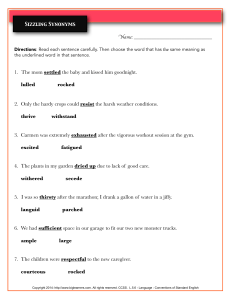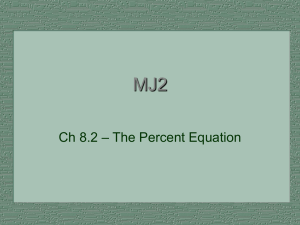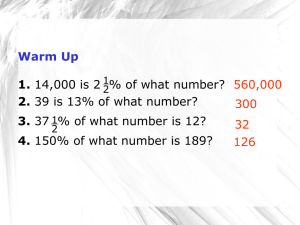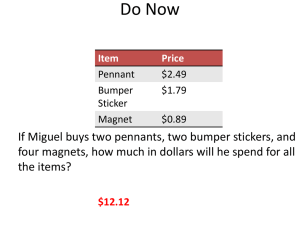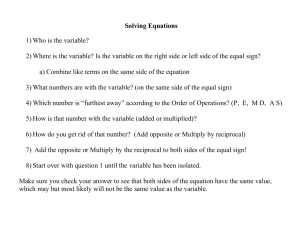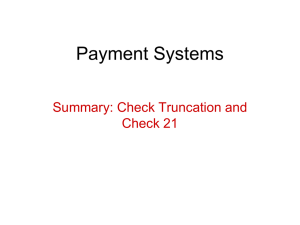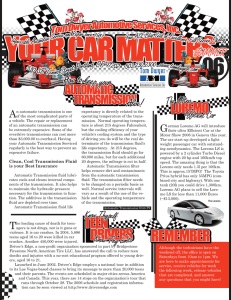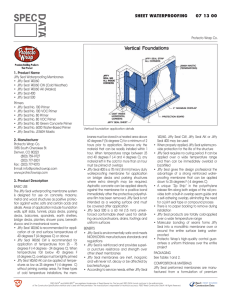Solutions
advertisement
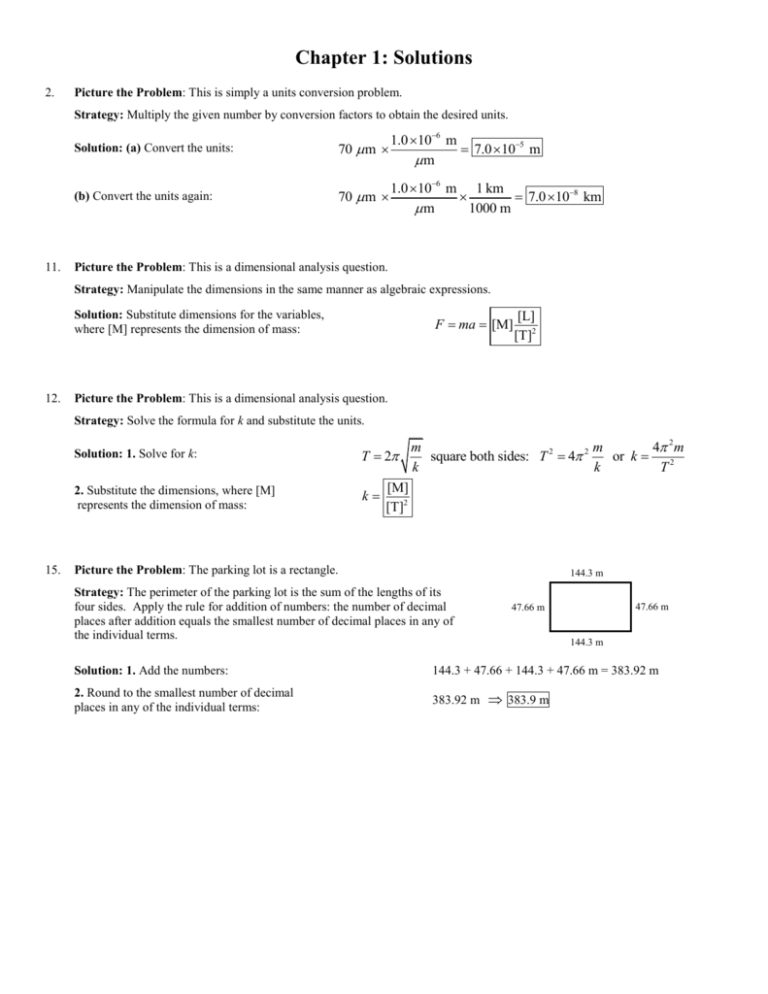
Chapter 1: Solutions 2. Picture the Problem: This is simply a units conversion problem. Strategy: Multiply the given number by conversion factors to obtain the desired units. 11. Solution: (a) Convert the units: 70 m 1.0 106 m 7.0 105 m m (b) Convert the units again: 70 m 1.0 106 m 1 km 7.0 108 km m 1000 m Picture the Problem: This is a dimensional analysis question. Strategy: Manipulate the dimensions in the same manner as algebraic expressions. Solution: Substitute dimensions for the variables, where [M] represents the dimension of mass: 12. F ma [M] [L] [T]2 Picture the Problem: This is a dimensional analysis question. Strategy: Solve the formula for k and substitute the units. 15. Solution: 1. Solve for k: T 2 2. Substitute the dimensions, where [M] represents the dimension of mass: k m m 4 2 m square both sides: T 2 4 2 or k k k T2 [M] [T]2 Picture the Problem: The parking lot is a rectangle. 144.3 m Strategy: The perimeter of the parking lot is the sum of the lengths of its four sides. Apply the rule for addition of numbers: the number of decimal places after addition equals the smallest number of decimal places in any of the individual terms. 47.66 m 47.66 m 144.3 m Solution: 1. Add the numbers: 144.3 + 47.66 + 144.3 + 47.66 m = 383.92 m 2. Round to the smallest number of decimal places in any of the individual terms: 383.92 m 383.9 m 18. Picture the Problem: This is a significant figures question. Strategy: Apply the rule for multiplication of numbers, which states that the number of significant figures after multiplication equals the number of significant figures in the least accurately known quantity. 24. Solution: 1. (a) Calculate the area and round to four significant figures: A r 2 14.37 m 648.729144 m 2 648.7 m 2 2. (b) Calculate the area and round to two significant figures: A r 2 3.8 m 45.3645979 m2 45 m2 2 2 Picture the Problem: This is a units conversion problem. Strategy: Multiply the known quantity by appropriate conversion factors to change the units. Solution: Convert seconds to weeks: 30. 1 msg 3600 s 24 h 7 d 4 msg 9 10 wk 7 s h d wk Picture the Problem: This is a units conversion problem. Strategy: Multiply the known quantity by appropriate conversion factors to change the units. In this problem, one “jiffy” corresponds to the time in seconds that it takes light to travel one centimeter. Solution: 1. (a): Determine the magnitude of a jiffy: 1s s jiffy 1 m 11 1 3.3357 10 8 100 cm cm cm 2.9979 10 m 1 jiffy 3.3357 1011 s 2. (b) Convert minutes to jiffys: 32. 1 minute 60 s 1 jiffy 12 1.7987 10 jiffy 11 1 min 3.3357 10 s Picture the Problem: The volume of the oil is spread out into a slick that is one molecule thick. Strategy: The volume of the slick equals its area times its thickness. Use this fact to find the area. Solution: Calculate the area for the known volume and thickness: A V 1.0 m3 1 m 6 2 2.0 10 m h 0.50 m 1106 m
